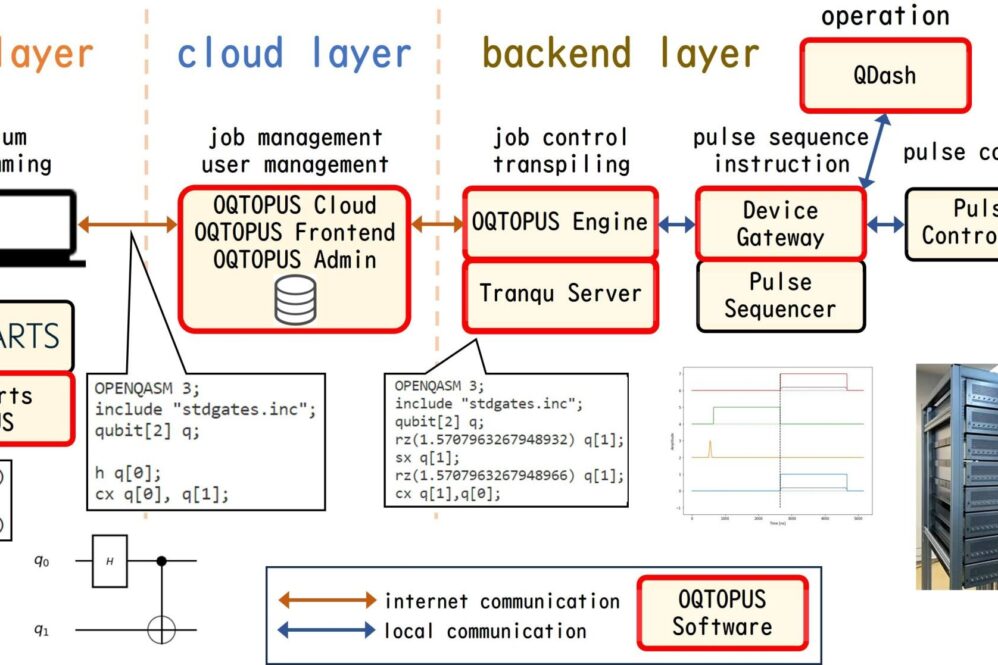OQTOPUS (Open Quantum Toolchain for Operators and Users) stands as a groundbreaking all-in-one operating system for quantum computers developed in Japan. This fully customizable system, available on GitHub, represents one of the most comprehensive open-source initiatives in quantum computing globally.
There are yet several operating systems proposed for quantum computing operations (China, Deltaflow.OS from Riverlane, QNodeOS, etc.) but this one is tailored to cloud environment.
Created through collaboration between the University of Osaka, Fujitsu Limited, Systems Engineering Consultants Co., Ltd. (SEC), and TIS Inc., OQTOPUS addresses a critical barrier in quantum computing adoption. Previously, organizations needed to develop extensive custom software for cloud-based quantum computing implementations, making the technology inaccessible to many potential users.
The system’s primary innovation lies in its complete functionality from setup to execution, particularly optimized for cloud environments. By providing a ready-to-use operating system that users can tailor to their specific requirements, OQTOPUS significantly reduces the complexity traditionally associated with quantum computing deployment.
Early adoption has already begun, with the University of Osaka’s quantum computing cloud service incorporating the system into its operations. Fujitsu Limited plans to make OQTOPUS available to its research partners using quantum computers in late 2025.
According to Dr. Keisuke Fujii from the University of Osaka’s Center for Quantum Information and Quantum Biology, this initiative will facilitate standardization across quantum software and systems while spurring development of innovative applications.
The release of OQTOPUS on GitHub marks a significant milestone in democratizing quantum computing technology. By providing an open-source foundation that handles the complex infrastructure requirements, the collaborative team has created a platform that allows researchers and developers to focus on applications rather than systems engineering.
The project’s future roadmap includes continuous expansion of capabilities and fostering a global community of contributors, further accelerating practical applications of quantum computing across various industries and research domains.
The GitHub repository is here.


